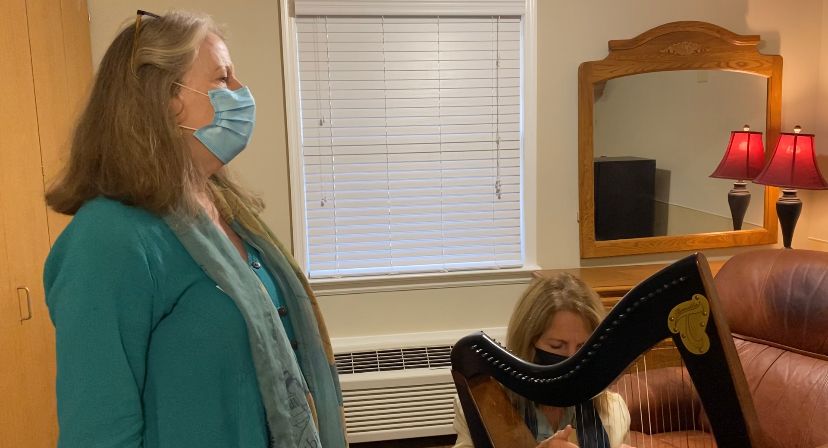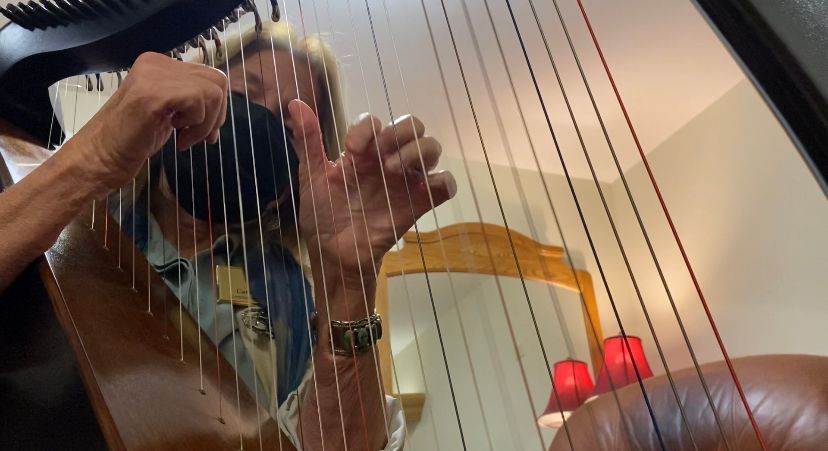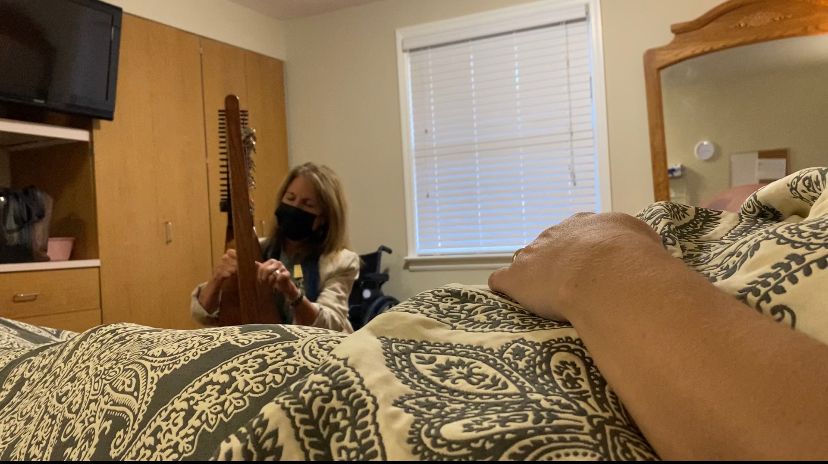The Therapeutic Musicians of Coastal Carolina are using the power of music to help patients heal. Right now, they’re working on a research project that will help legitimize their work.
Music can be beneficial, and these musicians have seen that firsthand.

“I can begin playing for a resident in a nursing home, say, who is moaning and distressed, anxious, maybe dementia has kind of taken over,” said Carole Green, a certified music practitioner. “And with music the initial thing is that it probably distracts and gives a focus to that person. Whatever happens in that brain, what we observe is that the moaning stops.”
Julie Rehder, the project director for the Therapeutic Musicians of Coastal Carolina, has also seen those benefits.
“I’ve had personal opportunities to play for people that I know,” Rehder said. “Once I had my best friend at the bedside with cancer and saw what it did for his family and for him, I knew that this is what I needed to do for the rest of my life.”

It’s a practice that they can use to ease patients in any stage of life, even their last.
“I honor every opportunity I have to play for someone in transition. It is the most sacred time that you get to be with someone,” Rehder said. “If they happen to pass while we play, we continue to play for a little while because we feel that that person is still in the room for a bit…there’s something about having the music there that is supportive for them (the family) and allowing them to show emotion and expression.”
It’s a rewarding experience.
“To see people who are suffering have that suffering diminished or alleviated,” Green said. “Whether it’s loneliness, pain, anxiety, sleeplessness — there are just so many ways I’ve seen music aid a person in kind of creating that healing environment that makes it possible for our bodies to rest.”
It’s important to note that they are not music therapists, but therapeutic musicians.
“A music therapist spends a great deal of their lifetime in school learning how to play instruments but also learning how to do therapeutic side-by-side activities with a very specific goal in mind,” Rehder said. “We are not music therapists. We are allowing the music itself to do the work. We are not using any of our therapeutic skills except through our hands and playing the instrument.”

Rehder, Green and five other therapeutic musicians are participating in a trial project funded by the state of North Carolina. They’re visiting 10 facilities weekly and collecting data on how the music has helped the patients.
That data includes observing changes in breathing and emotions as well as how the music is helping with behavior issues, medication doses, falls taken, and weight lost or gained.
That data will help validate their program to the state and federal government.
You can learn more about the Therapeutic Musicians of North Carolina here and about therapeutic musicians in general here.



